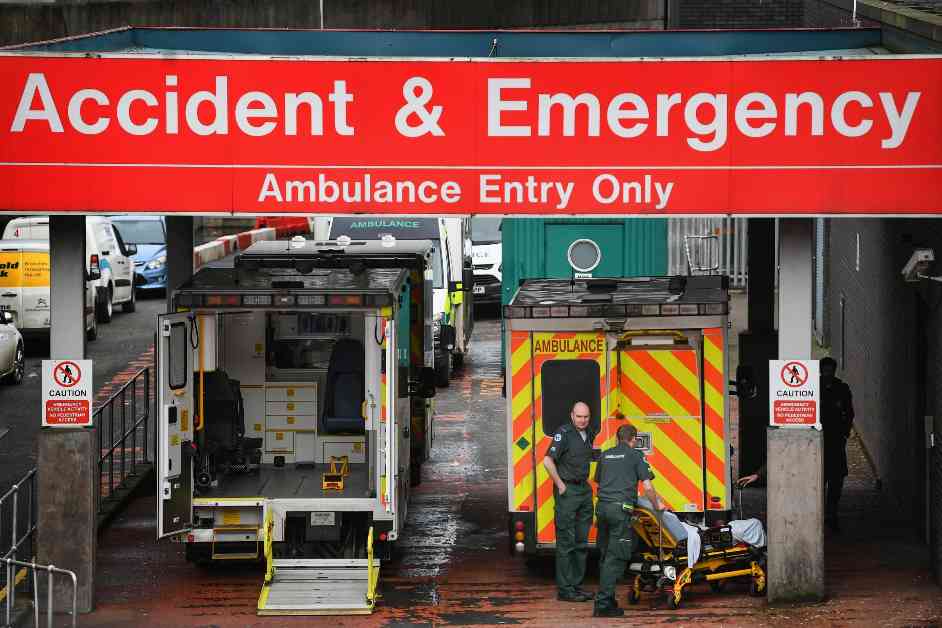Tragedy Strikes: Over 8000 Patients Succumb While Waiting for Ambulance to Hospital
In a heartbreaking revelation, statistics show that nearly 9000 patients in Scotland lost their lives last year before they could even reach the hospital via ambulance. The year 2024 witnessed a staggering 8780 cases where individuals succumbed either before the ambulance’s arrival or despite paramedics’ best efforts to resuscitate them.
This data, obtained through freedom of information requests, paints a grim picture, indicating an alarming 82.3% increase in fatalities compared to 2019, when 4820 deaths occurred under similar circumstances. The Scottish Ambulance Service had issued a warning in December that critically ill patients might face extended wait times for assistance due to prolonged handover processes at hospitals.
Calls for Urgent Action
The figures, brought to light by Scottish Labour, have prompted strong reactions from various quarters. Dame Jackie Baillie, the deputy leader and health spokesperson for Scottish Labour, expressed grave concern about the situation, emphasizing the urgent need for a new approach within the NHS. She stressed that ambulances are meant to be saviors, not witnesses to tragedies; however, the current scenario indicates a systemic failure that is costing lives.
Baillie’s poignant words capture the anguish felt by many frontline workers who have been witnessing these devastating outcomes. A poll conducted among ambulance staff revealed that one in four workers had personally experienced a patient’s death due to delays within the past three years. The survey conducted by the GMB union highlighted the distressing reality faced by ambulance workers, with many reporting prolonged stays outside overcrowded A&E departments, unable to transfer patients due to space constraints.
Human Stories Behind the Statistics
One striking account shared by a worker detailed arriving at a cardiac arrest scene after a 10-hour wait, only to discover the patient lifeless with rigor mortis setting in, holding a ringing phone in their hands. Such harrowing experiences underscore the toll that delays in ambulance services can take on both patients and the dedicated professionals striving to save lives.
Scottish Labour’s previous revelation that over 12,000 individuals lost their lives while awaiting ambulance services in 2023 further amplifies the urgency for swift action and reforms within the healthcare system. While the Scottish Government and the Scottish Ambulance Service have expressed condolences for the lives lost, their assurances about prioritizing patient safety and maintaining swift responses in critical situations point towards ongoing efforts to address the challenges faced.
A spokesperson for the Scottish Ambulance Service clarified that attributing these deaths solely to ambulance delays oversimplifies a complex situation influenced by various factors. The intricacies of emergency response systems, especially in geographically diverse regions, require a comprehensive approach that goes beyond mere statistics.
As the debate continues on how to improve emergency healthcare services and prevent further tragedies, the human stories behind the numbers serve as poignant reminders of the need for swift, effective, and compassionate responses to ensure the safety and well-being of all individuals in need of urgent medical assistance.
































